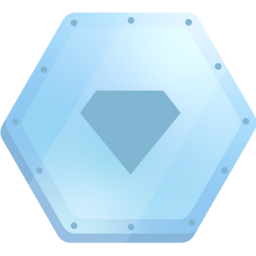Adrian Kosmaczewski
Mitglied seit 2024
Diamond League
18880 Punkte
Mitglied seit 2024

Da die Nutzung von künstlicher Intelligenz und Machine Learning in Unternehmen weiter zunimmt, wird auch deren verantwortungsbewusste Entwicklung ein immer wichtigeres Thema. Dabei ist es für viele schwierig, die Überlegungen zur verantwortungsbewussten Anwendung von KI in die Praxis umzusetzen. Wenn Sie wissen möchten, wie sich die verantwortungsbewusste Anwendung von KI in die Praxis umsetzen, also operationalisieren lässt, finden Sie in diesem Kurs entsprechende Hilfestellungen. In diesem Kurs erfahren Sie, wie dies mit Google Cloud heutzutage möglich ist, inklusive entsprechender Best Practices und Erkenntnisse. Es wird gezeigt, welches Framework Google Cloud bietet, um einen eigenen Ansatz für die verantwortungsbewusste Anwendung von KI zu entwickeln.
Earn a skill badge by completing the Introduction to Generative AI, Introduction to Large Language Models and Introduction to Responsible AI courses. By passing the final quiz, you'll demonstrate your understanding of foundational concepts in generative AI. A skill badge is a digital badge issued by Google Cloud in recognition of your knowledge of Google Cloud products and services. Share your skill badge by making your profile public and adding it to your social media profile.
In diesem Einführungskurs im Microlearning-Format wird erklärt, was verantwortungsbewusste Anwendung von KI bedeutet, warum sie wichtig ist und wie Google dies in seinen Produkten berücksichtigt. Darüber hinaus werden die 7 KI-Grundsätze von Google behandelt.
In diesem Einführungskurs im Microlearning-Format wird untersucht, was Large Language Models (LLM) sind, für welche Anwendungsfälle sie genutzt werden können und wie die LLM-Leistung durch Feinabstimmung von Prompts gesteigert werden kann. Darüber hinaus werden Tools von Google behandelt, die das Entwickeln eigener Anwendungen basierend auf generativer KI ermöglichen.
In diesem Einführungskurs im Microlearning-Format wird erklärt, was generative KI ist, wie sie genutzt wird und wie sie sich von herkömmlichen Methoden für Machine Learning unterscheidet. Darüber hinaus werden Tools von Google behandelt, mit denen Sie eigene Anwendungen basierend auf generativer KI entwickeln können.
This course covers how to implement the various flavors of production ML systems— static, dynamic, and continuous training; static and dynamic inference; and batch and online processing. You delve into TensorFlow abstraction levels, the various options for doing distributed training, and how to write distributed training models with custom estimators. This is the second course of the Advanced Machine Learning on Google Cloud series. After completing this course, enroll in the Image Understanding with TensorFlow on Google Cloud course.
This course takes a real-world approach to the ML Workflow through a case study. An ML team faces several ML business requirements and use cases. The team must understand the tools required for data management and governance and consider the best approach for data preprocessing. The team is presented with three options to build ML models for two use cases. The course explains why they would use AutoML, BigQuery ML, or custom training to achieve their objectives.
This course explores the benefits of using Vertex AI Feature Store, how to improve the accuracy of ML models, and how to find which data columns make the most useful features. This course also includes content and labs on feature engineering using BigQuery ML, Keras, and TensorFlow.
This course covers building ML models with TensorFlow and Keras, improving the accuracy of ML models and writing ML models for scaled use.
The course begins with a discussion about data: how to improve data quality and perform exploratory data analysis. We describe Vertex AI AutoML and how to build, train, and deploy an ML model without writing a single line of code. You will understand the benefits of Big Query ML. We then discuss how to optimize a machine learning (ML) model and how generalization and sampling can help assess the quality of ML models for custom training.
In diesem Kurs lernen Sie die KI- und ML-Angebote von Google Cloud für Projekte mit prädiktiver und generativer KI kennen. Dabei werden die Technologien, Produkte und Tools vorgestellt, die für den gesamten Lebenszyklus der Datenaufbereitung für KI verfügbar sind. Der Kurs umfasst KI‑Grundlagen, ‑Entwicklung und ‑Lösungen. Data Scientists, KI-Entwickler und ML-Engineers sollen in diesem Kurs ihre Fähigkeiten und Kenntnisse durch ansprechende Lernangebote sowie praxisorientierte Übungen erweitern.